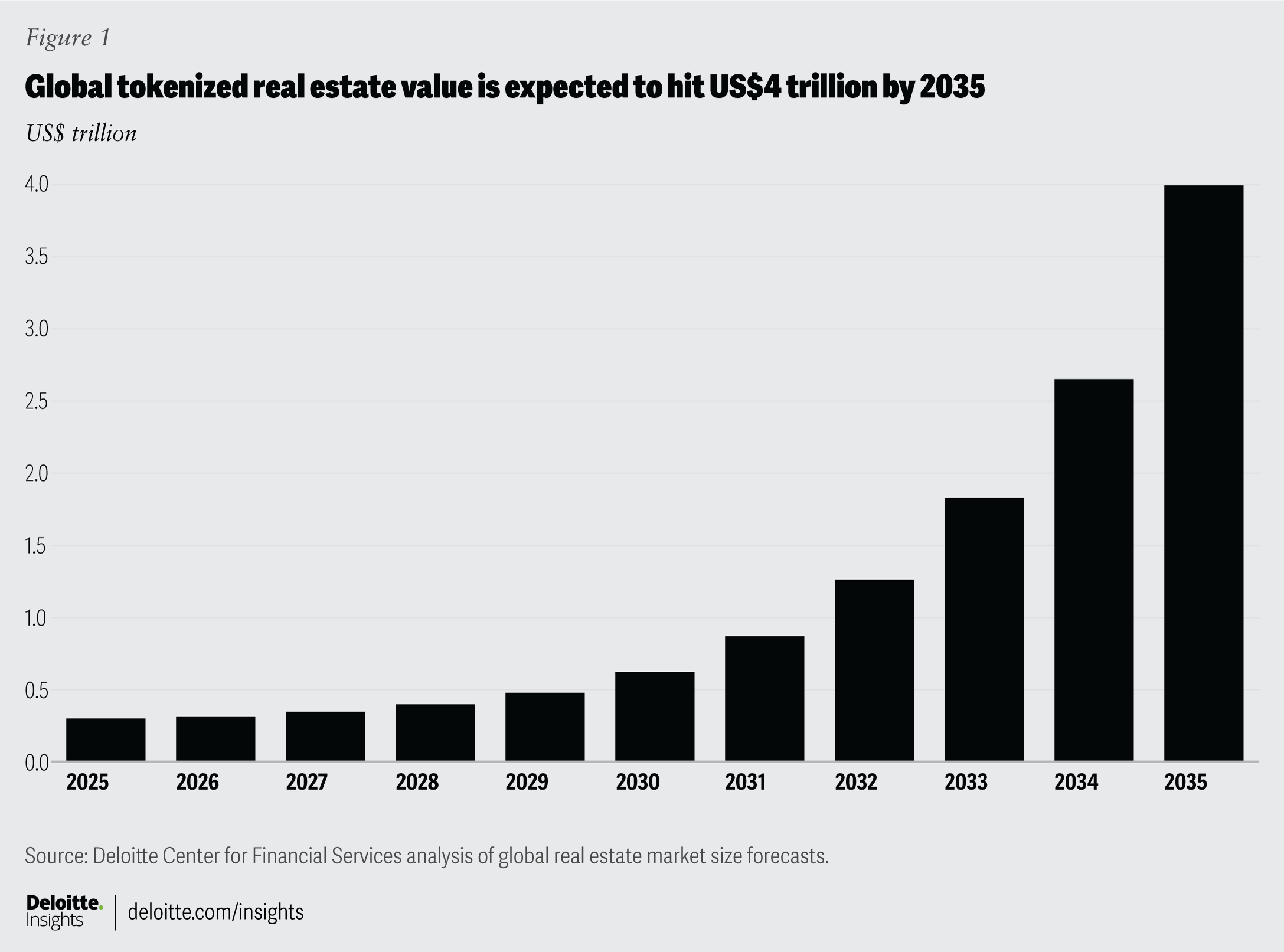
Key Insights:
- The tokenized real estate market is projected to achieve a valuation of $4 trillion by 2035, representing a 27% compound annual growth rate from its current valuation of less than $300 billion, as reported by Deloitte Center for Financial Services.
- Tokenization delivers several advantages, including efficient operations, quicker settlements, and wider access for investors.
- Nevertheless, the sector faces significant hurdles, including issues related to asset custody, regulatory uncertainties, and potential defaults.
What is Real Estate Tokenization?
Real estate tokenization allows for the digitization of properties, transforming how they are financed and owned. By leveraging blockchain technology, it provides simpler financial transactions and access to a broader range of investors. An interesting case is Kin Capital’s recent launch of a $100 million tokenized real estate fund, utilizing the Chintai platform for trust-deed-based lending.
Projected Growth Areas: The report from Deloitte outlines potential growth segments as:
- Private real estate funds
- Securitized loan ownership
- Development or undeveloped land projects
The anticipated growth indicates that these markets will be worth approximately $2.39 trillion for tokenized debt securities by 2035, with private funds contributing around $1 trillion.
Challenges Ahead:
Despite its growth prospects, the tokenization sector grapples with a range of regulatory challenges, cybersecurity risks, and scenarios of default.
For further reading:
Check out Tokenized Funds’ Rapid Growth Comes With Red Flags: Moody’s for more insights.
